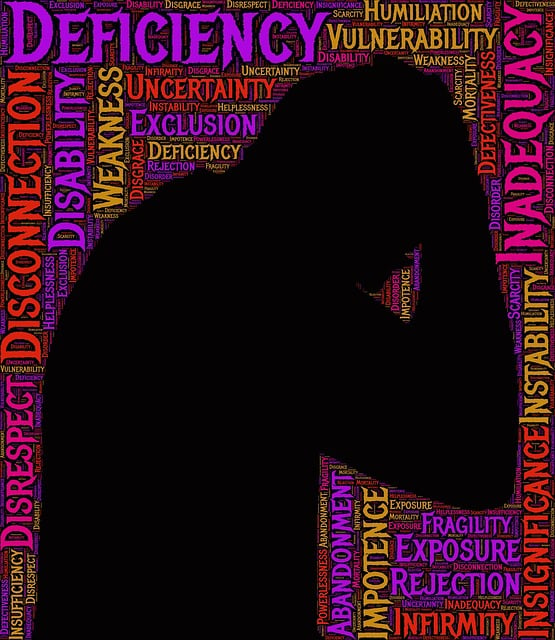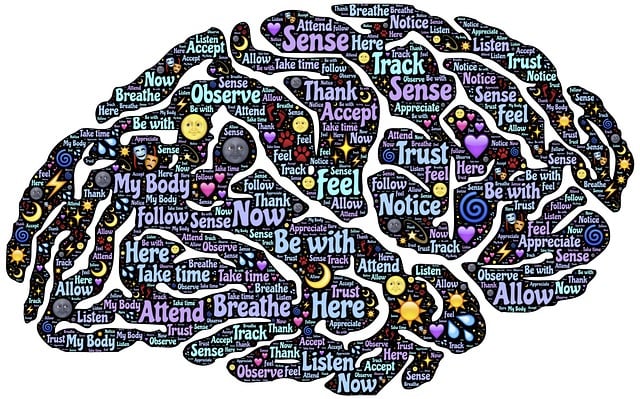The text highlights the detrimental impact of stigma on mental health, particularly anxiety disorders, caused by misinformation in media portrayals. Longmont Anxiety Therapy (LAT) addresses this issue through community outreach and educational initiatives like podcasts, workshops, and events that promote understanding and reduce stigma. By challenging stereotypical depictions, LAT fosters empathy and open conversations about anxiety relief. The text emphasizes the importance of media literacy and accurate, empathetic representations to empower viewers and create a supportive society for mental health. Collaboration between healthcare professionals, content creators, and policymakers is crucial for driving positive change in media portrayal of mental illness.
In today’s digital age, media representation significantly influences societal perceptions of mental illness. This article explores the challenge of stigma and its impact on understanding, with a critical analysis of current media portrayals. We delve into the role of local initiatives like Longmont Anxiety Therapy in supporting mental health efforts and present strategies for more accurate, empathetic media coverage. Collaborative efforts are crucial to fostering positive change, ensuring mental health is represented with sensitivity and integrity.
- Understanding Mental Health Stigma and Its Impact on Society
- The Current State of Media Representation: A Critical Analysis
- Longmont Anxiety Therapy: A Local Perspective on Mental Illness Support
- Strategies for Accurate and Empathic Media Portrayal of Mental Health
- Fostering Positive Change: Collaborative Efforts to Improve Media Accuracy
Understanding Mental Health Stigma and Its Impact on Society

Stigma surrounding mental health is a pervasive issue that negatively impacts individuals and society at large. Often stemming from misinformation and fear, this stigma creates barriers for people seeking help, leading to prolonged struggles and increased isolation. The consequences are far-reaching; it can hinder personal growth, damage relationships, and even impact career prospects. In Longmont Anxiety Therapy, we frequently encounter clients who have faced these challenges due to societal perceptions.
Community outreach programs and educational initiatives play a pivotal role in combating this stigma. By implementing effective emotional well-being promotion techniques, we can foster an environment of understanding and support. For instance, producing a mental wellness podcast series can be a powerful tool to share personal narratives, dispel myths, and offer practical advice. Such efforts contribute to a more inclusive society where individuals feel empowered to prioritize their mental health without fear of judgment.
The Current State of Media Representation: A Critical Analysis

The current state of mental illness representation in media often falls short of accuracy and sensitivity. Portrayals of individuals with anxiety disorders, for instance, frequently reinforce stereotypes or present a one-dimensional view, missing the complex spectrum of experiences. This is not unique to anxiety; similar trends are observed across various mental health conditions. Media platforms, including television, movies, and social media, hold immense power in shaping public perception. When portrayed incorrectly, these depictions can lead to stigmatization, misinformed attitudes, and barriers to access for those seeking Longmont Anxiety Therapy or other forms of support.
The impact of such representations is profound, especially for vulnerable populations. It can hinder the development of empathy, promote fear, and discourage individuals from discussing their struggles openly. This critical analysis underscores the need for more nuanced and authentic storytelling. By incorporating elements of resilience building and showcasing diverse experiences, media can contribute to a more comprehensive understanding of mental health. Moreover, encouraging self-awareness exercises through media literacy programs can empower viewers to critically evaluate portrayals, fostering a healthier dialogue around mental illness.
Longmont Anxiety Therapy: A Local Perspective on Mental Illness Support

In the heart of Longmont, Colorado, lies a beacon of hope and support for those navigating mental illness—Longmont Anxiety Therapy (LAT). This local initiative is dedicated to challenging stigmatized representations of mental health in media by fostering an environment that encourages open dialogue and promotes understanding. Through various programs, LAT offers not just therapy but also public awareness campaigns development focused on anxiety relief and the expansion of mental wellness coaching programs.
The team at LAT recognizes that breaking down barriers associated with mental illness requires a multifaceted approach. They organize community events, workshops, and educational sessions aimed at normalizing conversations about mental health. By engaging directly with locals, LAT facilitates connections, providing essential resources for those seeking support or wanting to learn more about anxiety management and overall mental wellness.
Strategies for Accurate and Empathic Media Portrayal of Mental Health

Media plays a powerful role in shaping societal perceptions about mental health. To foster understanding and reduce stigma, accurate and empathetic representation is essential. This involves employing strategies that go beyond stereotypical narratives often associated with mental illness.
Instead of relying on dramatic or sensationalized portrayals, media can highlight the humanity of individuals living with various mental health conditions. Incorporating personal stories, both fictional and non-fictional, allows for a nuanced understanding of the challenges and resilience shown by folks struggling with anxiety, depression, or other disorders. Longmont Anxiety Therapy, for instance, emphasizes compassionate communication strategies as a key component in their treatment approach, mirroring the importance of media portrayal that evokes empathy rather than fear or misunderstanding. Community Outreach Program Implementation and Compassion Cultivation Practices can further enhance this process, ensuring that media content not only informs but also inspires positive change and support systems within communities.
Fostering Positive Change: Collaborative Efforts to Improve Media Accuracy

In the pursuit of fostering positive change regarding mental illness representation in media, collaborative efforts between healthcare professionals, content creators, and policymakers are essential. Longmont Anxiety Therapy highlights the need for more accurate and nuanced portrayals of mental health conditions to combat stereotypes and promote understanding. By engaging in open dialogues and sharing expertise, these groups can collectively address the challenges that contribute to inaccurate or insensitive media depictions. This includes advocating for cultural sensitivity in mental healthcare practice, where diverse perspectives are integrated to ensure representation for all communities.
Self-awareness exercises and coping skills development play a significant role in these efforts. Media creators can benefit from understanding their own biases and the impact of their work on viewers’ perceptions of mental health. Similarly, healthcare providers can enhance their ability to offer effective support by incorporating coping skill development into treatment plans. Through these collaborative approaches, it is possible to create a more inclusive media landscape that not only reflects but also celebrates the diversity of human experiences related to mental illness.
In light of the above discussions, it’s clear that accurate and empathetic media representation of mental health is crucial in challenging stigma. The current state of media portrayal often perpetuates harmful stereotypes, but by adopting strategies for positive change, we can foster a more understanding society. Collaborative efforts between media outlets, healthcare professionals like Longmont Anxiety Therapy, and advocates are essential to creating a landscape where mental illness is normalized and supported. Through these collective actions, we can ensure that media stories about mental health inspire empathy, reduce stigma, and promote access to resources for those in need.














